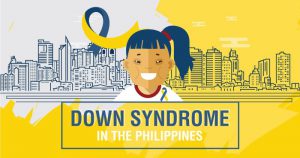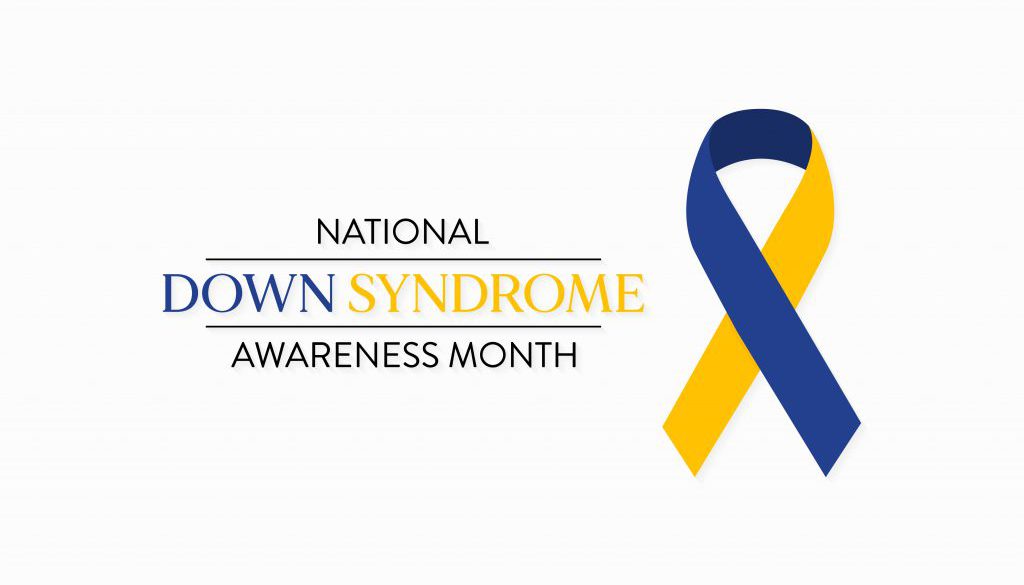Celebrating in a different way: National Down Syndrome Consciousness Month
Even though we might belong to the same family and share genetic material, we are all very different. Everyone is made up of a combination of genes, some from our mother, and some from our father, and this combination makes us the unique people we are. Genes carry information that determines what characteristics are inherited from our parents, such as the colour of your hair, how tall you are, and the colour of your eyes.
Genes are the basic units of heredity. They consist of DNA, which is part of a larger structure called a chromosome. Humans have 23 pairs of chromosomes. Sometimes, the things that make us different from everyone else are caused by a genetic anomaly. For reasons unknown to us, an error occurs at the cell division stage when a child is conceived. If the chromosomes do not split into equal halves, the new cells can have an extra chromosome (47 total) or have a missing chromosome (45 total), resulting in a genetic condition.
 Down Syndrome is the most common of the 6000 genetic disorders found worldwide, and it is probably the most recognized. Named after Dr. John Langdon Down, the first physician to identify the condition in 1862, Down Syndrome occurs when an extra chromosome 21 is present in the DNA structure and can occur in people from all races, cultures, and social backgrounds.
Down Syndrome is the most common of the 6000 genetic disorders found worldwide, and it is probably the most recognized. Named after Dr. John Langdon Down, the first physician to identify the condition in 1862, Down Syndrome occurs when an extra chromosome 21 is present in the DNA structure and can occur in people from all races, cultures, and social backgrounds.
February is National Down Syndrome Consciousness Month, aimed to raise awareness about the needs and abilities of people with Down Syndrome. We are all unique individuals, with differing looks, health needs, and intellectual abilities, the same can be applied to a person with Down Syndrome. In the Philippines, Down Syndrome is quite prevalent, with 1 in every 800 babies born with the condition. Many people are unaware that most young people with Down Syndrome enjoy a very typical life, with a range of support needs that can be minimal or more complex, depending on the individual.
As Down Syndrome is a genetic condition, there is a screening test available for expectant parents who are interested in discovering if their unborn child may have the condition. The test also screens for 17 other genetic conditions and provides accurate results in a timely manner.
The Prenatal Peace genetic screening test from EasyDNA Philippines is non-invasive, requiring no amniocentesis or chorionic villus sampling. A standard blood draw is all that is required to undertake the DNA test, but it should be mentioned that this does not replace a diagnostic test. If you are in any way concerned that your unborn baby might have a genetic condition such as Down Syndrome, then a screening test can provide much-needed peace of mind for parents to be.
National Down Syndrome Consciousness Month focuses on busting the common myths surrounding people with this condition. Did you know that people with Down Syndrome often lead very fulfilling lives? They attend schools, have a wide range of talents, are emotional like anyone else, and participate in many regular social activities.
Of course, the COVID-19 virus has made celebrating and socializing near impossible for many Filipinos, with many areas still in lockdown. The Philippines has had more than 470,000 confirmed cases and more than 9000 deaths. During the awareness month, people are encouraged to keep in touch with their friends via electronic channels, using live video calls and various messaging apps. Friends can still be social and keep in touch, it’s just a different way of having fun. How about a live cooking competition, or doing an art activity with friends?
This February, let’s focus on the ability of the people in our community, and the gifts that they bring to everyone they meet. It’s time to celebrate individuality, and Down Syndrome is no exception.




